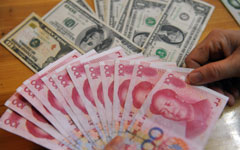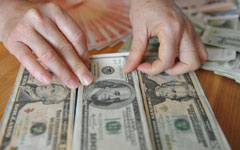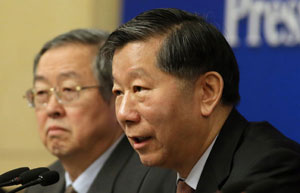WASHINGTON - The US Treasury Department said on Tuesday that China cannot be ruled as a currency manipulator, but said the pace of RMB's appreciation has been insufficient.
"China's currency yuan, or renminbi (RMB) appreciated on a trade-weighted basis in 2013 but not as fast or by as much as is needed," the US Treasury said in the latest semi-annual Report to Congress on International Economic and Exchange Rate Policies.
Meanwhile, it noted "the recent widening of the trading band gives China the opportunity to reduce intervention and allow the market to play a greater role in determining the exchange rate."
 |
 |
The report also noted that China's leadership has expressed "a strong desire" for exchange rate reform, and the Third Plenum decision document underlines the goal to "perfect the market-based renminbi exchange rate formation mechanism."
However, the US Treasury voiced concerns over recent volatility of renminbi value, saying "the yuan's recent depreciation underlines the importance of a significant increase in the transparency of China's actions in the foreign exchange market."
The Treasury said it will continue to carefully monitor China's exchange rate regime and the path of China's currency and will press for further policy changes.
Yi Gang, deputy governor of the People's Bank of China, said last week in Washington that the recent depreciation in the value of Chinese currency is within "normal" range and China is still on track toward a more market-oriented exchange rate regime.
He said he expected yuan's flexibility to increase in the future with two-way fluctuation instead of one way appreciation.
"I believe that, as time passes by, people will see clearly and better that the entire exchange rate regime mechanism in China is moving toward a market-oriented way," he added.
The US Omnibus Trade and Competitiveness Act of 1988 requires the Treasury to provide reports on whether its major trading partners manipulate the rate of exchange between their currency and the US dollar for purposes of preventing effective balance of payments adjustments or gaining unfair competitive advantage in international trade.
In previous such reports from the Obama administration, the US government did not label China as a "currency manipulator".
|
 |
|
